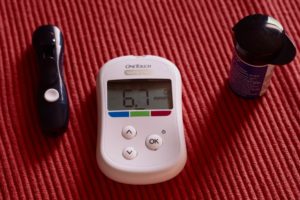Intermittent fasting is known for its many benefits: weight loss, blood sugar management, and autophagy are its best-known effects. There are also claims that it helps with inflammation and even immunity. But what about side effects? Can intermittent fasting cause migraines?
Intermittent fasting can cause both headaches and migraines. They will usually range from moderate to severe in terms of intensity. Sometimes they get so bad you feel you need to break the fast. Other times you push through. And, of course, some days you may get no headaches or migraines.
So why do they happen? Can you prevent them? And can you treat them without breaking a fast?
Let’s dive deeper into this topic and see what can be done about migraines caused by intermittent fasting and why they happen.
Can intermittent fasting cause migraines?
Yes, intermittent fasting can cause migraines and headaches. In fact, this is probably the number 1 side effect of intermittent fasting. For some people, it only happens during the first few days, while their body adjusts to the new eating style. For others, it is a constant that eventually requires them to stop fasting altogether. While others will get them on and off.
Causes of migraines and headaches while intermittent fasting
1. Low blood sugar
The most common cause of headaches or migraines during a fast is low blood sugar or hypoglycemia. This is common during a fast, especially when you’re just starting this new lifestyle and you’re still figuring out the ideal fasting window and the ideal meals that will help keep your blood sugar stable.
Why does this happen so often? Your body needs energy which it usually takes from glucose or carbs. After about 8 hours of fasting, your glucose is depleted, so your body starts burning fat for energy – which is good, right? If you usually suffer from high blood sugar, this could help you manage your glucose levels.
However, this can also be the perfect recipe for migraines, especially for those who usually have normal blood sugar levels.
2. Dehydration
You’d think everyone would drink gallons of water to push through the fast. Believe it or not, a lot of people end up dehydrated while intermittent fasting. Many rely on coffee or diet soda because of its appetite-suppressing properties. Which wouldn’t be so bad, except that caffeine is notorious for one side effect: dehydration.
Even if you’re not drinking a lot of coffee, you could be making another common mistake: you only drink water when you feel thirsty. There are two problems here. Firstly, at that moment, you’re actually already slightly dehydrated. Secondly, during a fast, you need a bit more water than usual, to sustain your body in the detoxification process. So if you’re constantly getting migraines during a fast, but your blood sugar is normal, increase your water intakes!
3. Poor sleep
For many people, intermittent fasting is helpful, in the sense that it allows them to have a more restful sleep and it regulates the circadian rhythm. For some, however, it has the opposite effect. There could be many causes here, and they differ from person to person. For instance, it could depend on when your fasting and eating windows are respectively. If you fast in the evening and go to bed hungry, this could go both ways. Some sleep very well on an empty stomach, for others that’s a recipe for insomnia. The same is valid if you fast in the first part of the day and eat late in the evening.
In short, if you find your sleep quality is being impacted negatively by intermittent fasting, try adjusting your fasting and eating windows until you have a restful sleep.
4. Using sweeteners or other zero-calorie drinks or foods
A long fast can get dull quickly and the temptation to start using natural sweeteners (like stevia) or even zero-calorie drinks increases. While some of these are allowed during a fast, it doesn’t mean they’re also ideal. Migraines aren’t a common side effect of artificial or natural sweeteners or other zero-calorie foods, but it is still possible. Some of them could also contribute to dehydration, which in turn can cause migraines and headaches.
If such foods are a common staple in your diet and you often experience migraines, it may be worth giving them up for a while.
Can I break my fast if I have migraines?
Unless you’re fasting at your doctor’s orders, or you’re on a religious fast you absolutely don’t want to break, you can stop fasting any time if you need to. Fasting shouldn’t be harmful to your health. A mild discomfort, especially when you first start intermittent fasting could be normal. But if this discomfort persists or gets worse, or if it gets in the way of your daily activities, you should stop fasting.
How to get rid of migraines without breaking a fast
The first thing you need to do is figure out the cause of your migraines. The first and easiest step would be to increase your water intake.
Next, try looking at your blood sugar. You can even try monitoring at home. Is it constantly fluctuating, or worse, are you hypoglycemic? If yes, then the problem is a bit more complicated. Look at what you’re eating last. A meal higher in protein and healthy fats, but low in simple carbs and sugars will help keep your blood glucose more stable. If diet adjustments don’t work, you may need to face the fact that your current fasting window is too long. Try shortening it for 1-2 hours and see if your symptoms improve. Remember hypoglycemia is a serious condition, so if your blood sugar keeps decreases, break your fast immediately.
Next, try looking at your caffeine intake. Too much caffeine is also not healthy. Drinking cup after cup to decrease your appetite will not only make you dehydrated, but it might also give you a migraine from the caffeine itself. You shouldn’t drink more than 1-2 cups during a fast, so if you’re drinking more, try cutting back on it, or drink it decaf.
The bottom line
Can intermittent fasting cause migraines? Yes, it can. The good news is that it is a side effect that can be prevented by most people. Stay hydrated, don’t drink too much coffee, and make sure you’re getting good sleep. You can also try shortening your fasting window and see if it helps you feel better. Finally, check your blood sugar levels and make sure you’re not hypoglycemic. This can quickly become a dangerous condition that requires you to break the fast immediately.

